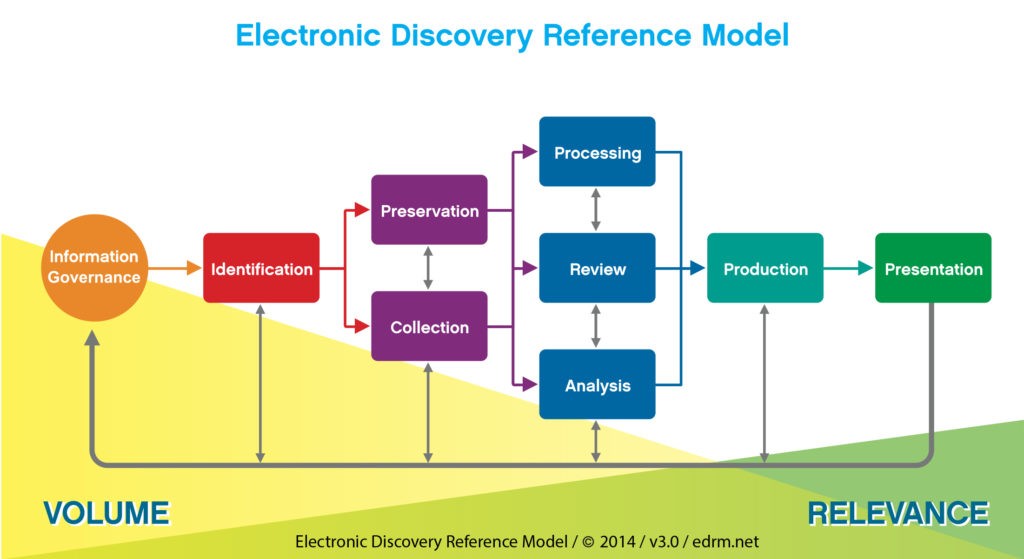Translation Services for eDiscovery

Are you looking for translation ediscovery companies? Our company has been providing quality translation services for ediscovery since 2005. Whether it is E-Discovery, Early Data Assessment or Legal Translation of foreign documents such as contracts, agreements, discovery and compliance documents, The Translation Company is the trusted provider for many Am Law 200 and Fortune 500 legal departments. Our language solutions provided for legal professionals just like you:
|
|
What is e-Discovery
Discovery is a specific stage of a law suit. After signed off by a judge, litigants will have a duty to provide to the opposite party documents related to the matter being disputed. Federal regulation, more specifically FRCP 26(a)(1) establishes an obligation on a party to provide the opponent with a copy or a description by category and location of all documents, ESI, and tangible things within its possession and control that it may use to support its claim. If in the past most of these documents would be physical, today most of the documents will be digital. Thus, what was known as simply “Discovery” in the past has become “E-Discovery”. Today, an interesting fact is happening. Since almost everything in the discovery stage is digital, people are dropping the “e” from “e-Discovery” and call it just “Discovery” again.
e-Discovery requires specific techniques for data retrieval, analysis, selection and preparation for use at court. The EDRM (Electronic Discovery Reference Model) is a model published by the edrm.net, part of the Duke Law School.

Electronic Discovery Reference Model – Click to see large size
The EDRM illustrates the main aspects of e-Discovery from Information Governance to the production and presentation in case of litigation.
What about “Multilingual e-Discovery”?
Multilingual e-Discovery occurs when the e-Discovery process encompasses documents in more than one language. A company from Japan operating and facing a demand in the United States would certainly have documents in both English and Japanese to share with the opposite party. The more global a company the higher the chances it will have documents produced in multiple languages.
Think about the legal disputes between Apple and Samsung over design and other technical aspects of their phones. Apple’s engineering is in California while most of its production is done in China. Samsung has its main engineering department in South Korea, while part of its production is also located in China. Just right of the bat we would have three languages involved in such disputes: English, Mandarin (or Simplified Chinese) and Korean. Depending on the issues brought up in such demands other countries and languages could be quickly added to the litigation.
Challenges of multilingual e-Discovery
e-Discovery is already a complex process. While lawyers focus on law and legal strategy, e-Discovery technology experts will tackle literally hundreds of thousands of pages of documents (some times millions of pages) to find the information needed by the lawyers (a party’s own counsel as the opposite party’s counsel as well).
Multilingual e-Discovery adds another layer of complexity: information in multiple languages. While lawyers and legal technology experts can easily communicate in English to define the best search terms and quickly evaluate the results of a certain e-Discovery strategy, other languages will require native translators with substantial experience in legal translation. And, the contribution of such legal translators go much further than a simple plain translation. They must be involved throughout the e-Discovery process because there are multiple ways of communicating something in another language. Whenever a set of searches is created in English, chances are you will have considerably more searches in languages such as Portuguese, Spanish, French and German, all of them considerably more prolix and prone to variation. And, on top of the challenge of a higher number of searches to be run, each of the result batches obtained by such searches in other languages will have to be translated back to English so the lawyers can decide if they are retrieving or not the content they are looking for.
How we help you with e-Discovery
The Translation Company is run by a CEO highly experienced in complex international cases. Luciano Oliveira has managed the company’s team in dozens of high profile cases. Masry & Vititoe (Erin Brokovich’s former employer), relied on the company’s service to support the translation needs of international cases for almost 10 years.
Our team has extensive experience in both language and legal technologies, which help our clients to hit the ground running and tackle large multilingual e-Discovery challenges on time and for one of the most competitive price structures in the industry.
Practice Areas
|
|
Language solutions for complex cases from the initial discovery stage to the final stages. We use the latest forensic technologies to uncover and make available in your language business correspondence, emails, technical documents, stored data and everything in between. Some of the practice areas we work with:
Specialists in Large-Scale, Multilingual Cases
Have a thousand documents to be translated in a couple of weeks? Yes, we can get it done. We specialize in high-volume, short turnaround projects.
Human expert translation when native-level quality is needed and MT machine translation for high-volume or low-budget stages such as initial paper discovery, eDiscovery and document review.
eDiscovery Translations for Complex Matters
Need a team of certified expert translators along with experienced project managers working immediately? These are just some of the reasons why legal professionals across the country trust their eDiscovery translations to The Translation Company Group:
 |
 |
 |
The Translation Company Group is registered as a corporate member of the American Translators Association under ID 245382.
We Are Happy to Help You.
For a complimentary quote or to discuss your needs and requirements, call us at 212-300-5990 or email sales@thetranslationcompany.com. Need an in-person meeting to discuss? Our team will travel and meet qualified clients in any place in the US.
e-Discovery Resources
EDRM – Electronic Discovery Reference Model
The EDRM, now a part of the Duke Law Center for Judicial Studies, creates practical resources to improve e-discovery and information governance.
The Sedona Conference
The Sedona Conference has a working group named “Electronic Document Retention and Production”, which is recognized as a major thinking tank for e-Discovery.
